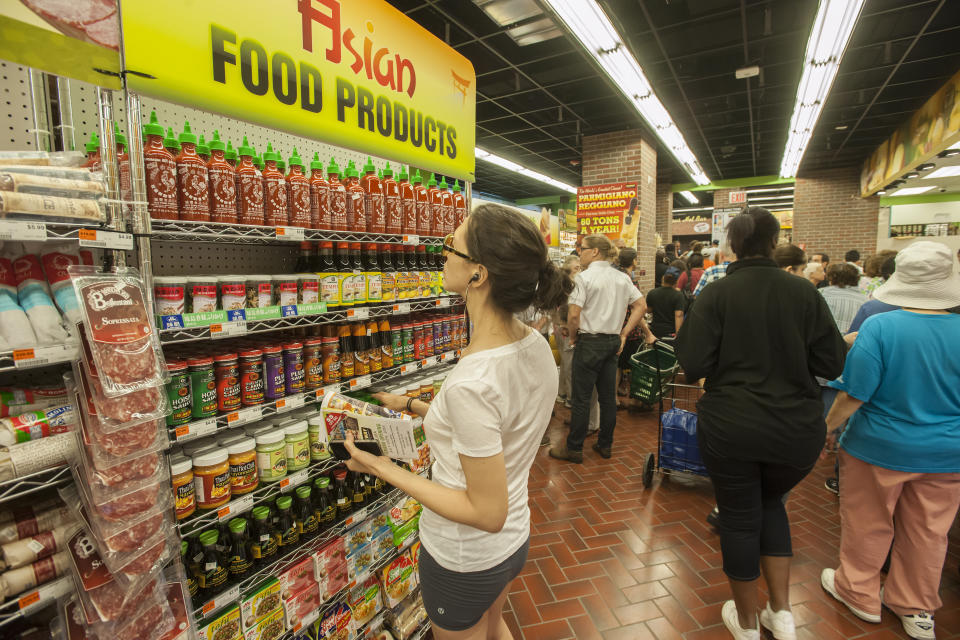Amazon's grocery deliveries are spiking — here's how grocery stores can compete
Amazon (AMZN) earnings blew past Wall Street’s expectations on Thursday and potentially put traditional brick-and-mortar grocery stores on notice by revealing that its grocery deliveries had doubled since the same quarter last year.
The spike in deliveries came after Amazon eliminated a $14.99 monthly fee for its online grocery delivery service, Amazon Fresh, for Prime members. So how can regional grocery stores like New York’s Fairway — which recently filed for bankruptcy — actually compete?
“You're never going to beat Walmart (WMT) on price. You're never going to beat Amazon on convenience. The way that you win is on experience and on trust,” Scott Moses, head of the grocery & restaurants investment banking practice PJ Solomon, told Yahoo Finance’s On The Move on Thursday, before Amazon’s earnings came out.

While Walmart continues to be the largest grocery seller in the U.S., Amazon has grown its grocery footprint through Whole Foods, its cashierless Amazon Go, and through its grocery delivery service, Amazon Fresh.
“Retail is all about customer retention, customer acquisition, and they're [Amazon] making that investment in order to get people to continue to buy,” Moses says.
Still, while online groceries sales from both Amazon Fresh and Whole Foods spiked this quarter, Amazon did not see the same increase from physical sales at Whole Foods, which it bought in 2017. Physical store sales declined slightly from the same quarter a year ago. But Moses noted that traditional grocery stores have other competitors to worry about.
“Grocery stores clearly have been impacted by not just Amazon, but all these other alternative grocers — Walmart, Target, Costco (COST), Aldi ... Trader Joes the dollar stores, Dollar General and Family Dollar. Those guys combined generate more grocery sales in this country than traditional supermarkets. So the consequences of that are pretty significant,” said Moses, who’s advising on Fairway’s bankruptcy filing.
“Right now nearly 3 million people in the United States are working in grocery stores,” he said. “And when stores close, it is gut wrenching.”
When grocery stores close, he noted, they can often leave so-called food deserts in their wake. As Yahoo Finance anchor Julie Hyman pointed out, Amazon will likely be happy to fill that gap with its grocery delivery service.
McKenzie DeGroot is a producer at Yahoo Finance. Follow her on Twitter: @degrootmckenzie
Read more:
Why it's a good sign that people are willing to pay $90 for Lululemon yoga pants
'Companies that stay private too long may not have the best exit strategy': IPO expert
America's retailers have 'no choice' but to pass on tariff costs: ex-apparel association CEO
Why freelancing on Fiverr may beat driving for Uber, expert says
Follow Yahoo Finance on Twitter, Facebook, Instagram, Flipboard, SmartNews, LinkedIn, YouTube, and reddit